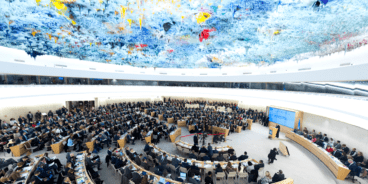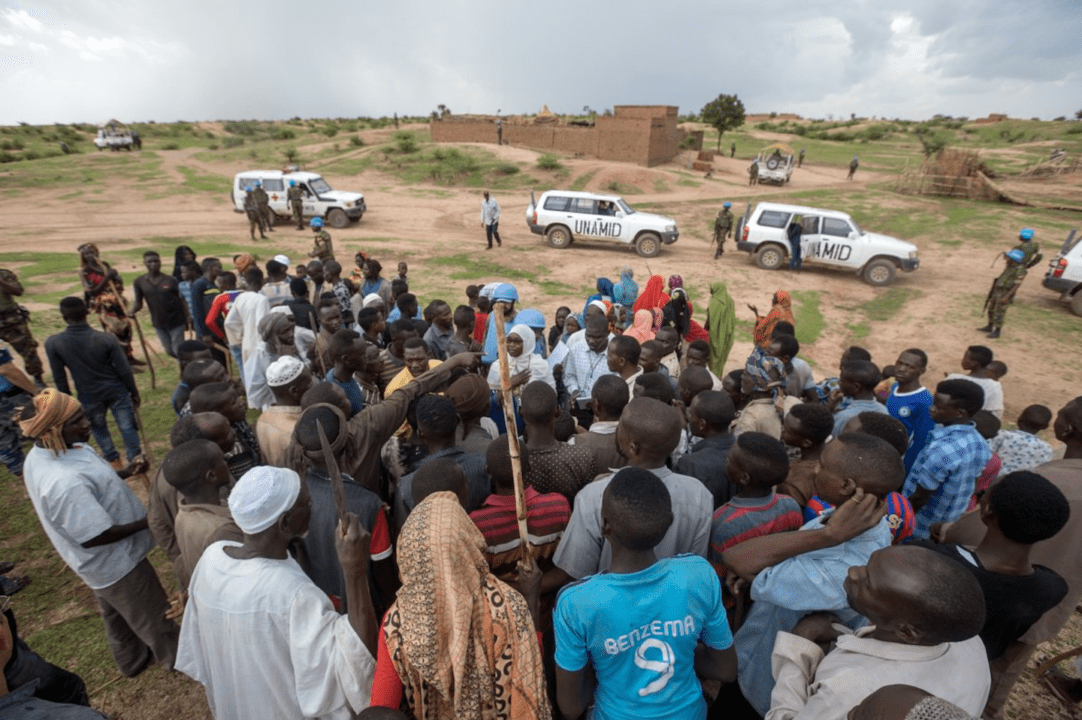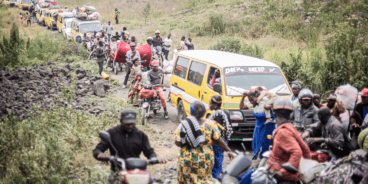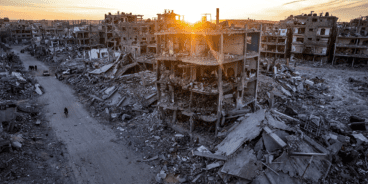

Atrocity Alert No. 159: Democratic Republic of the Congo, Myanmar (Burma) and Sudan
Atrocity Alert is a weekly publication by the Global Centre for the Responsibility to Protect highlighting and updating situations where populations are at risk of, or are enduring, mass atrocity crimes.
Deadly inter-communal violence in DR Congo displaces 300,000 people
Violence between the ethnic Hema and Lendu communities in Ituri province, Democratic Republic of the Congo (DRC), has resulted in more than 240 people being killed since 10 June. The attacks reportedly started with the killing of four Lendu traders and escalated as armed men attacked a number of Hema villages in retaliation. Some people were reportedly killed with machetes while others were burned alive in their homes.
Since 10 June so-called self-defense groups from both communities have been implicated in numerous “revenge killings” while armed youths have been accused of forcibly preventing fleeing civilians from reaching safety and humanitarian care. On 18 June the UN Refugee Agency (UNHCR) reported that the violence has resulted in more than 300,000 people being displaced since early June. UNHCR expressed concern “for the safety of civilians after receiving reports of killings, kidnappings, maiming and sexual violence being unleashed against people.”
The Hema and Lendu ethnic groups have a long history of conflict, including several years of intense fighting in Ituri province that started in the late 1990s and resulted in thousands of deaths. The Hema are predominately pastoralists and the Lendu are mainly farmers, with longstanding disputes over access to land and resources. External forces have previously exacerbated these divisions, providing support to one ethnic-based militia or another.
Although the two communities have coexisted relatively peacefully since 2007, a surge in inter-communal fighting between December 2017 and April 2018 resulted in more than 260 people being killed and 60,000 people fleeing to Uganda. At least 120 towns and villages in Ituri were pillaged and destroyed as a result of the fighting, and the UN peacekeeping mission in the DRC (MONUSCO) discovered several mass graves in the area. In its 18 June statement UNHCR noted that it fears this new “escalation could engulf large parts of the province.”
The government and MONUSCO should continue to deploy additional troops to Ituri province in order to prevent further violence and protect displaced civilians. The recurrence of deadly conflict between the Hema and Lendu communities demonstrates the need for urgent reconciliation efforts as well as accountability for crimes perpetrated during last year’s violence. The government should implement measures to mediate inter-communal tensions, including through engagement with local civil society, and address structural issues of land access, resource allocation and poor governance in Ituri province.
“Systemic failure” of the UN amid atrocities in Myanmar (Burma)
On Monday, 17 June, UN Secretary-General António Guterres accepted an independent report that evaluated the United Nations’ role in Myanmar from 2010-2018, highlighting the fundamental failure to adequately respond to warning signs of potential mass atrocities against the Rohingya population in Rakhine State. The Secretary-General called for the independent inquiry earlier this year, appointing Ambassador Gert Rosenthal, a former Minister of Foreign Affairs of Guatemala and current member of the International Advisory Board of the Global Centre for the Responsibility to Protect, to lead the investigation.
The report highlights the “tragedy of Rakhine State,” outlining the history of repression, discrimination and disenfranchisement of the Rohingya. With regard to atrocities associated with the so-called “clearance operations” that began on 25 August 2017, the report notes that “these events [have] seriously undermined the political and peace processes, and are at the very center of the dysfunctional presence of the United Nations in Myanmar.”
The report emphasizes the UN’s lack of a “unifying and common strategy” in Myanmar, with some agencies and individuals prioritizing democratization and development while others focused on ongoing human rights violations. While the Office of the UN High Commissioner for Human Rights and the Office for the Prevention of Genocide and the Responsibility to Protect and others had spoken out about the growing threat in Myanmar, “other parts of the United Nations System did not back them up with any visible support,” favoring quiet diplomacy and prioritizing their access to the country.
This “systemic failure of the United Nations” to prevent mass atrocities in Rakhine State occurred despite the Human Rights up Front initiative, and a previous critical report analyzing the UN’s failure in relation to atrocities committed in Sri Lanka in 2009 at the end of the civil war in that country. The report emphasizes that responsibility for the genocide rests with the Myanmar authorities, but also notes the failure of the UN Security Council to support the Secretariat and take any action to halt atrocities after August 2017.
Rosenthal rightfully points out that the root causes of the atrocities that took place in Myanmar “persist and probably have even been aggravated.” Both the UN and its member states have failed the Rohingya people and allowed a genocide to take place on their watch. The international community must now act to hold the perpetrators accountable and put pressure on Myanmar’s government to uphold the universal human rights of the Rohingya.
Ongoing violence in Darfur and Khartoum ahead of UNAMID renewal
On 11 June the United Nations-African Union Hybrid Operation in Darfur (UNAMID) deployed an assessment mission to the village Deleij in central Darfur, Sudan, after reports of clashes between nomads and local residents. At least 17 people were killed while more than 100 houses were burnt after violence broke out at a local market. UNAMID’s Joint Special Representative, Jeremiah Mamabolo, called upon “all involved in the clashes to show restraint and opt for peaceful means to resolve differences.”
Meanwhile, Amnesty International published a report on 11 June revealing that Sudanese government forces, including the Rapid Support Forces (RSF) and allied militias, have continued to commit war crimes and other serious violations of human rights in Darfur. The report notes that the Sudanese army and RSF have engaged in scorched earth campaigns, unlawful killings and sexual violence, with the RSF destroying at least 45 villages in the Jebel Marra area between July 2018 and February 2019.
The RSF have a history of perpetrating atrocity crimes during the long conflict in Darfur and have been implicated in the killing of at least 112 civilians in Khartoum on 3 June after opening fire on peaceful protesters attending a sit-in. The sit-in had been ongoing since early April when hundreds of thousands of Sudanese people protested against the Transitional Military Council’s unwillingness to hand over power to a civilian-led government following a military coup against former President (and indicted genocidaire) Omar al-Bashir.
Despite a relative reduction in violence in Darfur over recent years and the 2017 decision by the UN and AU to start a drawdown process for UNAMID, the security situation in Darfur remains extremely fragile. Disturbingly, nine former UNAMID bases that have been handed over to the Sudanese government are now under the control of the RSF.
When the UN Security Council (UNSC) decides on the future of UNAMID on 27 June it must consider the ongoing threat of further atrocities in Darfur and across Sudan. With so many people depending upon UNAMID as their primary source of protection, any further reduction in the size of the mission would severely impact the safety of vulnerable populations. These risks may be exacerbated by a 13 May decree by the TMC that UNAMID hands over all its bases to the RSF.
In his briefing to the UNSC on 14 June the UN Under-Secretary-General for Peace Operations, Jean-Pierre Lacroix, said that given the recent developments in Sudan, “we have had no choice but to suspend the handover of UNAMID sites to the Sudanese authorities.” Until the political situation in Khartoum and the security situation in Darfur have stabilized, the UNSC should pause any further UNAMID troop reduction. It is also of utmost importance that UNAMID’s Human Rights Division – which monitors, investigates and reports on human rights violations, including sexual and gender-based violence – is able to to carry out its mandate.
Related Publications


Atrocity Alert No. 425: Democratic Republic of the Congo, Afghanistan and Holocaust Remembrance Day
